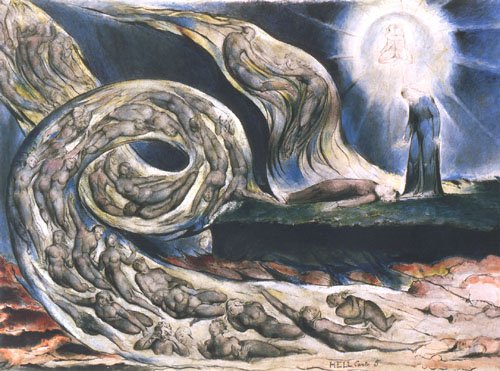received by sysiphus 17/01/2012
Without
a doubt, we are living through a period where the living conditions
in this world are being renegotiated in their totality. Capitalism’s
gleaming shop window has been shattered to reveal what lies behind: a
process of putrefaction and decadence. Democratic hopes and
capitalist promises are being ousted alongside the fictitious
prosperity -through loans- of capitalism’s golden age experienced
in previous decades; at the same time the “promised land”—complete
with private swimming pool, two cars, and four televisions— is
replaced by a gray desert of depression, desperation, insecurity, and
fear. Domination, in a demonstration of its more then efficient
flexibility, is withdrawing toward a new kind of digitally programmed
totalitarianism, and is creating bulwarks by setting up new police
units, biometric databases, and even newer, more elastic
“antiterrorist” laws—all in an attempt to steel itself against
the enemy within, which is threatening the ever-so-fragile social
peace. The transparent social galley is being transformed into a
maximum-security prison, as social cohesion built up over years is
set in renegotiation of the rules on which it was based: access to
wealth and consumption; the promises and hopes of social ascent and
recognition; the role of wage-labor as a means to satisfy needs and
desires and as a ticket to human self-fulfillment in a world of
consumerist dreams and sensations.
Work
is not simply and exclusively an economic process that commercializes
human activity. Due to its totalitarian character, it imposes itself
as a generalized universal condition that creates and shapes
relationships and consciousness. It was through the re-signification
of work as a means of attaining social ascent and of capitalist
promises of participation in consumption that Power was remodeled in
the minds of its subjects, was shared out and broadened, thus
consolidating the dominant discourse across classes. The rhetoric of
“self-made businessmen”, of achieving social recognition through
bank loans, but also of self- fulfillment through consumption, found
fertile ground in attentive ears for the cultivation of a
cannibalistic consciousness whose supreme value was the ruthless
pursuit—even over dead bodies—of prestige, power, and wealth. The
old working class was transformed into petty-bourgeois/middle class
proprietors who identified their own interests with those of the
system, since apart from their chains (now made of plastic and in the
form of loans) they also had their comforts and social status to
lose. Under the terms of the generalized consensus taking shape, the
traditional repressive forces “withdrew” to the rearguard
(although still developing under the surface) and a campaign of
enervation and individuation was launched, spearheaded by
prefabricated lifestyle models, of access to centers of
entertainment, of social recognition, and consumerist happiness.
Social peace was guaranteed through satisfying the new collective
desires of a society that, hungry to consume products and images,
dedicated itself to an orgy of de-signification of its own existence.
This was the era in which existential poverty deepened, individuation
and concern only for one’s own skin rooted themselves into people’s
consciences, and life kept on loosing more and more its meaning—caged
by work hours, televised reality shows, standardized entertainment
outlets, and images of fictitious happiness. However, this festival
had an expiration date and now the time has come to add up the bill,
which will have to be paid plus the interest rates.
The
new social conditions being shaped come to make the transitional leap
from the internalization of control –made possible via access to
power and consumer goods- to the internalization of obedience through
fear, insecurity, flexible work hours, unemployment, and images of
entire areas occupied by the mercenaries of the police. Using the
international financial crisis as a pretext, an attempt of
unprecedented scale is being made to redistribute wealth toward the
highest social strata and simultaneously restructure social relations
in their entirety. The fictitious image of affluence is being
forcefully unseated, together with the illusions that accompanied it,
and is replaced by that of a relentless future now dawning. Fear and
uncertainty are coming to replace promises as the main driving force
of the social machinery and to establish themselves in the minds of
the until recently happy subjects, who are now watching the
disintegration of their “earthly paradise” made from loans, as
they are touched by the same fate to which they themselves—untroubled
by all the blood that accompanied their progress and happiness—once
condemned people who live on the margins of capitalism. Wage-labor,
the cornerstone of widespread social change, is being stripped of its
veneer as a means of ascent and success and demystified, thus
revealing its true face: a coercive process of producing inequality
and exploitation. Based on this condition, where the traditional
mechanisms of consensus previously in function are collapsing, and
with social cohesion becoming more and more fragile, Domination is
adopting a discourse of war. It is declaring a permanent state of
emergency and fortifying itself behind flexible new “antiterrorist”
laws, biological databases, surveillance systems, and thousands of
new urban mercenaries/ police officers in preparation to face the
enemy within who threatens the grand plans to impose a new
totalitarianism.
The
rekindling of insurrectionary practices on a global level, the
reappearance of metropolitan guerrilla warfare, the confrontational
demos around the world, the revolts in the Arab world, the growing
distrust of the role of regime intermediary being played by the Left,
and the turn towards more radical forms of struggle come to remind us
that the wager for a revolutionary solution has neither been lost nor
forgotten. Rather, it is entering the arena once again, more urgent
and vital than ever. The prosecution, imprisonment, and murder of
those who struggle are not the results of an attack launched by
Domination; rather they constitute its defensive efforts undertaken
to address the cracks found throughout its foundation, which are
becoming more and more intensified, as faith in the image of its
omnipotence is dwindling day by day.
On
January 31, while I was making my getaway after carrying out a
robbery at the vehicle auction organized by the Public Asset
Management Agency Inc. (which conducts a wide range of different
auctions and is responsible for the liquidation of cars, motorcycles,
and many other assets seized by the pigs or by customs), I was
surrounded and arrested by uniformed pigs from the DIAS squad. They
brought me to Thessaloniki Police Headquarters, where I was stripped
down to my underwear, handcuffed behind my back, and made to stand
facing a wall for about seven hours while various undercovers and
other pigs joined the parade to get a look at me. I continually
refused to say anything other than that I am an anarchist, and I also
refused to have my fingerprints and photograph taken.
They
later brought me to my home, which they searched for five hours
before we returned to Police Headquarters. Once back there, a dozen
pigs surrounded me and their chief attempted to begin a process of
interrogation and humiliation of my principles in the style of a
“friendly chat,” during which I heard grotesques such as: “We’re
the real revolutionaries and you’re just a selfish loser,” “We’re
against the banks” (!), “While you refuse to help yourself, the
other one has already squealed,” [some clichés never die]
etc. The only thing I told them time and time again was that I am a
revolutionary anarchist and that they are nothing more than Power’s
thugs—lackey enforcers of the law without minds of their own, who
humiliate, torture, and murder in exchange for a salary. When morning
came, after getting in touch with my lawyer I found out that—because
of a phone number written on a slip of paper I tragically forgot I
had on me—they had arrested another person I knew from the
antiauthoritarian milieu, and the mass media had printed photos of
both of us. They then brought us to court, making a shocking
spectacle out of the whole thing like always. They dressed us in
white bulletproof vests, with panic-stricken pigs in balaclavas
looking like something out of a scene from a cheap Hollywood action
flick. The only thing I told the hearing judge was that I did what I
did as an anarchist in the context of the refusal of work, and that
the other person being charged had nothing to do with the case. They
ruled that I was to be placed in pretrial detention, while the other
comrade was released because dozens of witnesses testified that he
was working at the self-managed café stand in the Polytechnic
school at the exact time of the robbery.
Robbing
the Public Asset Management Agency Inc. dealers of stolen goods is a
partial expression of my refusal to submit to the oppressive, empty
reality imposed by the fragmented space and time of work hours and
predetermined paths; imposed by the coercive “you must” ordered
by bosses and the alienated “I want” expressed by their
subordinates; imposed by a production process that turns people into
living spare parts for the machinery of consumption of images and
products. Rejecting to play the role either of a victim of
exploitation by small or big bosses, or of the victimizer and
collaborator in exploiting others; sickened as much by the submissive
work ethic of the “poor but honest” worker as by the
overambitious arrogance of the “successful careerist”; perceiving
the entire complex of social relations as an alienated result of
capitalist production, I decided to shift into individual action,
throwing myself into the polymorphic revolutionary anarchist process,
part of which is the refusal of work. The refusal of work can’t be
a choice divorced from a more generalized rupture with Domination,
and obviously this refusal isn’t necessarily defined by the means
by which it is realized (i.e. a robbery). Raids on goods or money can
easily degenerate into a job, with fixed hours and all the
consequences that entails: the arrogance of being rich, the
participation in consumerism, the fragmentation of time according to
“work hours,” and the development of a (criminal) professional
identity. Robbery, kidnapping, individual or collective expropriation
of goods, sabotage, attacks on economic targets, collective living
experiences, and give-away bazaars are all means that can be seen
within the context of the overall refusal of the world of work, of
production and consumption of images and products, to the degree that
they bear an awareness that places them within the wider
revolutionary struggle for individual and collective liberation.
As
a part of this polymorphic movement, I now find myself imprisoned in
the dungeons of Ioannina, paying the price for my conscious
decisions. The only thing I regret is not doing more outside these
walls.
Not
one step back!
Rami
Syrianos, Ioannina Penitentiary Center, April 2011
translation by crossing the rubicon

















No comments:
Post a Comment